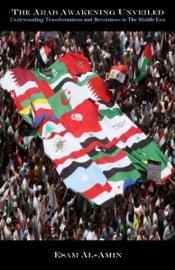The Generals have done it again!
Egypt's president, Mohamed Morsi, was deposed one year after being democratically elected by the Egyptian people. For those opposed to Morsi and the Muslim Brotherhood (MB), the move by the military is seen as supporting a popular uprising and a belated effort to revive or restore the Egyptian revolution that ousted Hosni Mubarak more than two years ago. But for Morsi's supporters or those who simply had any respect for democratic governance and the rule of law, the action by the army is nothing short of a brazen though soft military coup d'etat.
Which one is it? Here are the facts.
The military in Egypt has always enjoyed a privileged and autonomous status and is tacitly considered the power behind the throne. For decades, political power was concentrated in the hands of an elite yet mostly corrupt political and business class that monopolized power and looted the country's resources. But the revolution that toppled Mubarak was in essence a rejection not just against the dictator, but also his entire corrupt regime. One of the major demands of the revolution was to get rid of dictatorship and repression and uphold the principles of democracy and the rule of law.
Over the next two years, the political process that followed Mubarak's overthrow allowed for the will of the Egyptian people to be expressed numerous times through free and fair elections and referenda. The people in Egypt went to the polls at least six times: to vote for a referendum to chart the political way forward (March 2011), to vote for the lower and upper house of parliament (November 2011-January 2012), to elect a civilian president over two rounds (May-June 2012), and to ratify the new constitution (December 2012). Each time the electorate voted for the choice of the Islamist parties to the frustration of the secular and liberal opposition.
To the discontent of the Islamists, all their gains at the polls were reversed by either the Mubarak-appointed Supreme Constitutional Court (SCC) or the military. The lower house of parliament, of which the Islamists won 73 percent of the seats, was dissolved by the SCC a year ago, and the military has just suspended the new constitution, while ousting the democratically-elected president.
Undoubtedly, the MB committed colossal mistakes. For example, they reneged on several promises to their secular and liberal coalition partners, including to not contest the majority of parliamentary seats, field a presidential candidate, or exclude others in the composition of the Constitution Constituent Assembly. Perhaps, their gravest mistake was to ally themselves closely with the Salafist groups during the process of writing the constitution, thus alienating many of the secularists, liberals, as well as Christians even though the MB did not care much about the constitutional ideological battle. Their motivation was not to be outflanked by the Salafis on the Islamic identity of the state. To accomplish this objective, they lost most of the others.
In addition, Morsi and the MB did not adhere to their promise of full partnership in governance. Many of the youth and opposition groups felt that the president and MB leadership were not genuine in their outreach and only sought their participation for cosmetic reasons. Even their Islamic partners such as the Salafist Al-Noor Party complained that the MB wanted to monopolize the major power centers in the state. It did not matter that the MB did not control the military, the intelligence, the security apparatus, the police, the diplomatic corps, the banking system, or even the bureaucracy. But because of the MB's lack of transparency and openness, the perception was that they were trying to control the major centers of powers in the state and exclude other parties based on ideology while the reality was that such control was non-existent or superficial.
But to the average people on the street what mattered was their security and livelihood. During his one year in power, Morsi faced enormous challenges: deterioration in security and basic services, lack of social justice, and economic decline. It appeared to many as deliberate attempts by the deep state (entrenched elements and bureaucrats loyal to the former regime) to ensure the failure of his presidency. His lack of transparency and openness to his people in favor of presenting an optimistic or upbeat outlook added to public cynicism and the perception of incompetence. Another major mistake by the MB was its failure to separate its socio-religious movement from its political manifestation, the Freedom and Justice Party (FJP). While the public in past times respected the MB for its social services and religious outreach, engaging in politics by its nature is a source of division and rancor. For example when the MB fielded its presidential candidate in March 2012, it was MB's Guidance Bureau that made the declaration instead of the FJP. In the eyes of the public there was little distinction between the MB and the FJP. So the MB was, correctly or not, held responsible for any political missteps by the FJP.
In part because the 2011 revolutionary partners were sharply divided on ideological grounds, former regime loyalists, politicians, and corrupt businessmen were able to regroup and play an increasing role in the political battles that engulfed the country. Mubarak's National Democratic Party (NDP), which dominated political life for decades, was the only party in the country capable of organizing nationwide and competing with the MB. But since the public rejected the NDP (and it was banned shortly after Mubarak was deposed), it did not participate in the parliamentary elections in the fall of 2011. However, by June 2012, Ahmad Shafiq, Mubarak's last Prime Minster, represented the NDP's interests. As one of the two remaining candidates in the second round of the presidential elections, he ultimately lost by less than two percent.
Morsi took over power by June 30, 2012. When he was not as inclusive as promised in his senior appointments, the opposition almost immediately turned against him. Two months after he was sworn in, they called for a massive protest on August 24, calling it "The protest to oust the rule of the Brotherhood." Their hostility and acrimony increased as the writing of the new constitution was finalized. Meanwhile, the new political openness and freedom in the country allowed for the private media, owned and controlled by many of the former regime's loyalists and supporters, to target Morsi and the MB in an orchestrated campaign to alienate and inflame the public.
By the time the president issued his ill-advised and ill-fated constitutional decree, the opposition was not only united against Morsi and the MB but also determined to dislodge them from power. Morsi argued that his move was necessary to protect the nascent democratic political structures that the courts were dissolving one by one. He eventually reversed course and annulled his decree, even though the opposition rejected all his appeals for political dialogue. However, his objective of having a new constitution, which the opposition vehemently rejected, and replacing the Mubarak-appointed public prosecutor, a demand that the youth and revolutionary groups had called for, were already fulfilled. This single act proved to be a rallying point for all the opposition and the remnants of the former regime (fulool), which united under the National Salvation Front (NSF) in order to confront and defeat Morsi and the MB. They campaigned vigorously to defeat the constitution, which to their dismay, was passed by 64 percent.
Meanwhile, the MB and their Islamist allies aimed at targeting the corrupt elements in the judiciary, which represented not only a major obstacle in delaying or dissolving the new democratic components of the state, but also it reversed the convictions and released all the corrupt elements of the Mubarak regime. Although this was also a revolutionary demand, the opposition, which so far had not fared well at the ballot box, aligned itself with the judiciary and accused the Islamists of attacking an independent branch of government that had reservations, if not outright discontent, about the revolution.
By the spring of 2013, the MB and its supporters were preparing for new parliamentary elections, which they had expected to win. Their strategy was that if they won the parliamentary elections and forced judiciary reform, they would be able to control or influence all branches of government and easily confront the deep state and institute their program. Sensing the danger of this scenario, NSF coordinator Dr. Mohammad ElBaradei met with Shafiq in the United Arab Emirates in March. In an interview last week, Shafiq disclosed that he and ElBaradei had agreed on an elaborate plan to depose Morsi and the MB. He also predicted that Morsi and MB officials would be arrested and tried. Furthermore, Shafiq complained that ElBaradei and the opposition did not fulfill their part of the bargain, which was to promote and support Shafiq and help make him the next president, and that they instead began to distance themselves from him.
Throughout the political power struggle, the youth movements, which spearheaded the 2011 revolution against the Mubarak regime, were marginalized while their grievances were not addressed. Morsi and the MB gave only lip service to their demands and needs. But during his address to the nation last week, Morsi belatedly acknowledged this neglect as he promised to address it. By late April, the youth groups had already come together to form a new movement called Tamarrud or Rebellion. The central theme in their program was to call for early presidential elections by gathering 15 million signatures, a million more than Morsi had received during his presidential run.
During the process, the secular opposition and the fulool embraced Tamarrud's message, while the latter used the offices of the NSF and held several press conferences at the headquarters of well-known media outlets of Mubarak loyalists. There is also anecdotal evidence that the group received financial support from fulool groups. Meanwhile, the private media started a well-orchestrated campaign and continuous onslaught on the MB in particular and the Islamists in general. The level of hostility and hatred spewed against them was reminiscent of the 1930s Nazi propaganda against the Jews. Dozens of incidents were reported in the past two months, in which supporters of the MB were attacked verbally and physically by strangers because of their purported associations.
(Note: You can view every article as one long page if you sign up as an Advocate Member, or higher).






